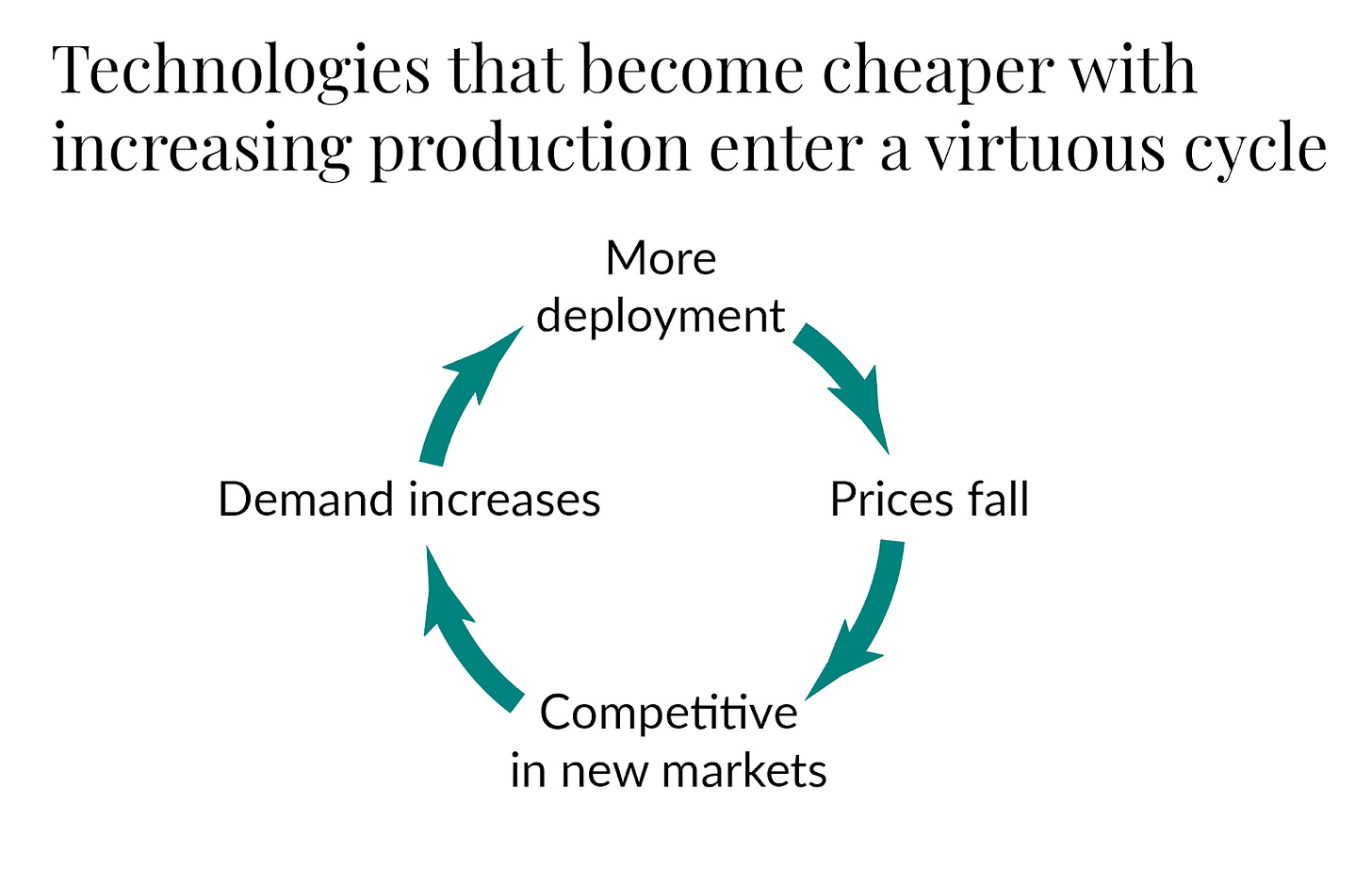The Grumpy Optimists Newsletter
Can you be better than Greta?
Happy Monday folks 👋
After weeks of waiting, the day has finally arrived. The PUBS ARE OPEN! I hope you've all got your booking confirmations at the ready and your hand sanitiser on standby for some socially responsible organised fun, it's been a while. But seriously, hope you are all able to enjoy getting to meet safely with family, friends, and other loved ones again, whether it be in a beer garden or a back garden.
On top of the usual top reads in climate, social and environmental news, we're exploring the classic conversation, how much power does an individual have to create meaningful climate action?
Strap yourselves in, it's a good one.
Can you be better than Greta?
It might seem a strange way to start off, and I promise as always I'll bring it back at the end to provide some real optimism on this, but the answer is probably no. The work Greta Thunberg has done over the past few years (and continues to do) to galvanise momentum behind the climate movement is nothing short of remarkable. She has become the voice of a generation who are tired of the status quo, and who want a different future to the ecological collapse which we're currently heading for. She has shown voracious courage, confronting politicians and corporations on their hollow and unfulfilled promises to start taking climate change seriously. Above all, she practices what she preaches, by ensuring that the choices she makes as an individual reflect the broader systemic change she is calling for.
But not all heroes wear capes, and we don't all have to emulate Greta to do our bit. Taking small-scale actions like reducing meat intake in our diets or choosing to buy locally sourced seasonal ingredients to cook with may not capture the attention of the global media, but are they still meaningful? I can recall many a conversation with friends or family which reaches the rather sobering conclusion that climate change is a systemic issue that needs systemic solutions, and as much as I've often tried to argue a case for the value of individual behaviour, it's difficult.
Earlier this week I came across this article by Justin Rowlatt, which powerfully argues a case for why individual lifestyle changes can have a positive impact upon climate action. Mainly, because climate change is not a binary problem - it's not a case of it happening or not happening, but about the extent of the change, and keeping this to the absolute minimum that we possibly can. Rowlatt doesn't deny that our decision to eat less dairy or cycle to work instead of taking the car will solve a global crisis - and it's almost certain you won't be thanked for it, or see the impact it's having. But just because it isn't single-handedly solving the problem, it doesn't mean that it's not reducing the severity of it, or helping in some way.
I'm not trying to suggest that saving your food scraps to make veggie stock (which by the way I highly recommend) is going to save the day. But we have to stop being obsessed with striving for perfection, and accept that while our names might not go down in the history books next to Greta, this doesn't mean we cannot use our autonomy to push for positive change. We must use our power as individuals, as consumers, as activists and most crucially - as a collective - because any action, however small, is surely better than no action.
Check out the article here, and we'd love to hear your thoughts below 👂
Articles to read
💰 Climate tech has the backing of venture capital. Funding poured into climate technology, and this time it’s different. VCs hope Biden will help boost their pocket and the planet.
🕵️ Climate change is a national security threat. The impacts of climate change will lead to a less secure, more crisis-prone world. It can, however, offer the opportunity for more democracy.
🚚 Electric trucks show promise. Decarbonising transport is critical to achieving our climate goals, new research shows that electric trucks can be cheaper than combustion engines (as long as Nikola isn't making them).
⚡ Britains electricity system has greenest ever day. With low-carbon energy making up 80% of the energy mix, lunchtime on Easter Monday was the UK's greenest electricity system yet!
🐄 Rare species are being poisoned by livestock drugs. A controversial drug, diclofenac, which has been banned in several countries is causing
🍺 Free beer for your solar, ye right mate. The Aussie brewery, the Carlton Group, are offering free beer for solar panel to meet their climate ambitions, but only down under.
✈️ French lawmakers ban short flights. Domestic flights that can be taken by plane within 2 and a half hours are now banned in France as part of their climate ambitions.
😲 Solar is 99.6% cheaper than it was in 1976. What are the conditions that have led to renewables drastically falling in price and why low-cost renewables will unlock decades of cheaper energy and lower poverty. This is no short piece but very much worth checking out. The reason for the reduction can be summarised below. 👇
We'd love to hear your thoughts on any of this week's features, so scroll down to the comments and have your say👇🏻
Love
George and Will



